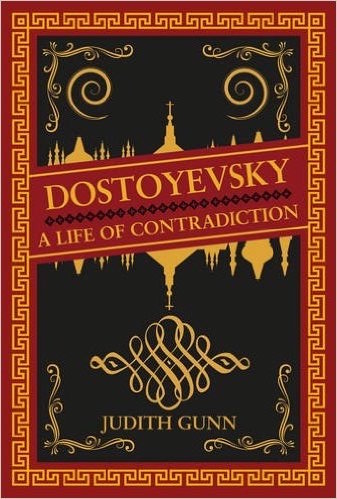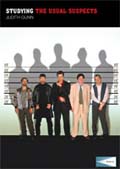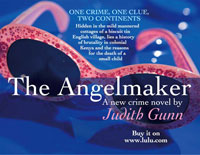There has been some wailing and gnashing of teeth by our leaders on the current state of education. Not the usual stuff: terrible standards, grade inflation etc.
No this time it’s content.
Esther McVey and Gavin Williamson are bewailing the apparent left wing bias in education. Esther McVey stated recently:
“I am now hearing that people aren’t teaching you what they need to – they’re overly indoctrinating you. It’s gone political, people are saying it has gone to the left, they’re forcing ideas on you.” The Independent
She says these attitudes are putting off “white working class pupils” who find that Miss or Sir’s beliefs are at odds with their family’s beliefs. Conservative MP for Tatton, David Lidington, suggests that “white working class lads” are turned off, because these beliefs are at odds with family views on Brexit – quite what Brexit has to do with it I’m not sure, it’s perfectly possible to be left wing and pro-Brexit.
Gavin Williamson talks about so-called “no platforming” I’m not quite sure what that means either, unless it means the teacher is not supposed to ask students to treat each other with mutual respect, that they are not supposed to stop them name-calling based on race, religion or orientation.
But Esther McVey is insistent that pupils are being “indoctrinated” and that “it has gone to the left”
Has it though? Has it really? Or was it always there?
Let me introduce you to Ignorance and Want – spoiler alert – left wing warning.
“This boy is Ignorance. This girl is Want. Beware them both,”
Do you know which book Ignorance and Want are characters in? That’s good teaching by the way, try to open by questioning rather than telling, not too pedagogic. That being said you probably do know – you were probably taught it at school, you will be taught it at school now, if you do GCSE English Literature, by most exam boards at least, and you will celebrate it every Christmas.
Ignorance and Want are the less famous children in Charles Dickens’ A Christmas Carol
“Have they no refuge or resource?” cried Scrooge. “Are there no prisons?” said the Spirit, turning on him for the last time with his own words. “Are there no workhouses?”
Ooh snap Scrooge! The Spirit quoted your own Tweet, damn! Mic drop!

My point is this that Michael Gove, aided by Dominic “eye test” Cummings, has revamped the exam system. He took A Levels back to a two year course, minimised AS Levels and revamped the syllabus to be more “traditional” but “ay there’s the rub”- the tradition of English literature is, at the very least, social comment, if not socialist.
Dickens’ London, as explored in Oliver, Bleak House, Little Dorrit, or Great Expectations (which is on the syllabus) and of course A Christmas Carol, explore the poverty, injustice and the conditions of London at the time. Dickens’ exposed those conditions then, precisely to inform a society that wanted to ignore the treatment of its children, some of whom genuinely did not know and were appalled by that treatment. Dickens, like David Copperfield worked in a bottle factory, aged twelve while his father was in debtor’s prison, darn it! There I go again being left wing!
Or there’s this:
“With her two brothers this fair lady dwelt, Enriched from ancestral merchandise, And for them many a weary hand did swelt In torched mines and noisy factories, And many once proud-quiver’d loins did melt”
and a bit later
“For them the Ceylon diver held his breath, And went all naked to the hungry shark; For them his ears gush’d blood; for them in death The seal on the cold ice with piteous bark Lay full of darts;”
and a bit later
“Why in glory’s name were they so proud?”
That’s from Isabella and the Pot of Basil, by that bastion of English poetry John Keats.
The whole story is about a woman who marries someone below her social class, for love, thus threatening the inheritance of her two brothers, who murder her husband. I’ll leave you to discover the relevance of the pot of basil. That poem is on the A Level syllabus, hard to teach without slipping into social justice, class system, feminist issues. Then there is Thomas Hardy who was no fan of war Drummer Hodge is on the A Level syllabus as for modern poetry Maya Angelou, Benjamin Zephaniah, Carol Ann Duffy – all and many have social comments to make.

There’s modern novels such as Never Let Me Go, Kazuo Ishiguro’s vision of a totalitarian capitalist dystopia; Animal Farm, Orwell more totalitarian dystopia; To Kill a Mocking Bird, Harper Lee, racial and social injustice and to be honest Heathcliff (Wuthering Heights, Emily Bronte) is not a great advertisement for capitalism, nor Jane Eyre (Charlotte Bronte) for a compassionate society. Pride and Prejudice (Jane Austen) explores the transactional nature of marriage pre feminism, and back to Dickens the prison hulks of Great Expectations, haunt modern day discussions regarding where to house refugees… and don’t get me started on Film Studies… oh go on then.
Attack the Block (dir Joe Cornish) – poverty in Peckham exposed by aliens. Tsotsi (dir. Gavin Hood) (Oscar Best Foreign Film 2005) poverty in South Africa; Winters Bone, (dir. Debra Granik) Oscar nominated, an early Jennifer Lawrence, poverty in America; Slumdog Millionaire, (dir. Danny Boyle) Oscar Best Film – poverty in India; City of God (dir. Fernando Meirelles, Kátia Lund) – poverty in Rio; Captain Fantastic (dir. Matt Ross) – not poverty actually, but an alternative way of living; Little Miss Sunshine (dir. Jonathan Dayton, Valerie Faris) an attack on the American Dream. Even when you teach Rear Window or Vertigo (dir. Alfred Hitchcock), contemporary culture and society are explained and compared. You don’t have to know any of those films to know that they deal with life, with issues, yes Toy Story (dir. John Lasseter) is there and it is a little light on social comment but it is still a discussion of justice, mutual respect and cruelty.
These are all texts approved by the OfQual in the government revamp.
It is not necessary to know the texts I am referring to, to know that to teach them needs context – context is all – as Margaret Atwood says in The Handmaid’s Tale (on the A Level syllabus). Literature, the arts, and cultural studies require exposition of our world and teachers do that with an open mind, precisely to open minds. You cannot hide the poverty in Dickens or the rage in Keats or Hardy. You cannot hide the fact that Percy Shelley was sent down from Oxford for distributing an atheist pamphlet, Mary Shelley was the daughter of a feminist or the fact that Byron joined a revolution and died in its service (well okay not in the fight). Even Tennyson recounts England’s most heroic failure in The Charge of the Light Brigade, and Kipling may honour the Empire, but we still have to talk about the Empire.
Finally I’m still not terribly clear why David Lidington thinks all this is connected with Brexit, Brexit was and is a cross party issue, just because a piece of literature teaches compassion or explores issues of injustice does not mean we cannot have Brexit. The link between Brexit and a lack of compassion is in the ear of the beholder, it comes under of the heading “if the cap fits” it is not in the text or the teacher.
Teachers teach what’s on the page.

















